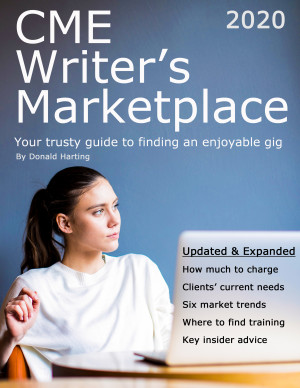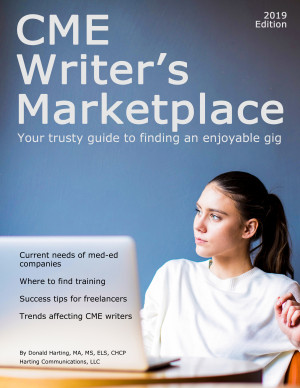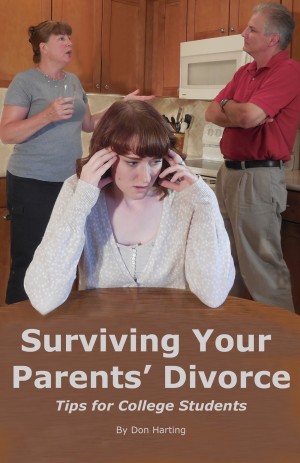Connect with the Author
Share with Friends
Interview with Don Harting
Published 2020-02-01.
Smashwords Interviews are created by the profiled author or publisher.
Books by This Author
CME Writer's Marketplace, 2021 Edition
by Don Harting
Series: CME Writer's Marketplace.
Price:
$9.99 USD.
Words: 11,750.
Language:
English.
Published: February 22, 2021
.
Categories:
Nonfiction » Health, wellbeing, & medicine » Medicine » Education & training, Nonfiction » Reference » Writing skills
This year's edition has been updated and expanded with 3 new market listings plus 2 original, bylined articles on how to break into the field and how to adapt to emerging markets. If you're a freelance medical writer, then CME Writer's Marketplace is your trusty guide to finding an enjoyable gig.
CME Writer's Marketplace, 2020 Edition
by Don Harting
Series: CME Writer's Marketplace.
Price:
$9.99 USD.
Words: 10,180.
Language:
English.
Published: February 19, 2020
.
Categories:
Nonfiction » Health, wellbeing, & medicine » Medicine » Education & training, Nonfiction » Reference » Writing skills
Updated and expanded with new market listings for 2020! CME Writer's Marketplace is your trusty guide to finding an enjoyable gig.
CME Writer's Marketplace, 2019 Edition
by Don Harting
Series: CME Writer's Marketplace.
Price:
$9.99 USD.
Words: 7,490.
Language:
English.
Published: May 22, 2019
.
Categories:
Nonfiction » Health, wellbeing, & medicine » Medicine » Education & training, Nonfiction » Reference » Writing skills
New! CME Writer's Marketplace is your trusty guide to finding an enjoyable gig. The 2019 edition contains detailed and up-to-date descriptions of the current freelance writing needs of 9 medical education companies. The 7,000-word guide also contains a list of training opportunities along with an analysis of 5 trends affecting the market for CME writing services.
Surviving Your Parents' Divorce: Tips for College Students
by Don Harting
Price:
$2.99 USD.
Words: 3,070.
Language:
English.
Published: September 2, 2014
.
Categories:
Nonfiction » Health, wellbeing, & medicine » Family health, Nonfiction » Psychology » Emotions
“I wish I'd had something like this to read in college. Reading it now, 40 years later, the memories and emotions come flooding back. I also look back with more compassion for myself during that time. I was trying to succeed in college and trying to cope with the grief at the same time. No wonder I cried myself to sleep every night for a long while!”
-- Margaret Moore, Hallam, Pennsylvania




